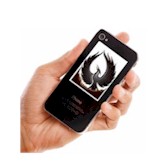|
|


IVR Solutions
This section of our technical library presents information and documentation relating to IVR Development and custom IVR software and products.
Business phone systems and toll free answering systems (generally 800 numbers and their equivalent) are very popular for service and sales organizations, allowing customers and prospects to call your organization anywhere in the country.
The PACER and WIZARD IVR System is just one of many DSC call center phone system features..
What is Interactive Voice Response?. An Interactive Voice Response (IVR) processes inbound phone calls, plays recorded messages including information extracted from databases and the internet, and potentially routes calls to either inhouse service agents or transfers the caller to an outside extension.
Contact DSC today. to learn more about our IVR services and IVR application development software.
Help Desk Professionals Reluctant to Use IVR and Self-Help Tools in Improving First-Line Response
Finds FrontRange Survey Automated solutions deliver good service, competitive advantage
CRMToday
Automated help desk solutions are proving critical in the delivery of good customer service, according to a new survey of industry trends undertaken on behalf of FrontRange Solutions. Respondents using FrontRange’s own HEAT solution for example were confident that they were performing well - against both customer expectations and those competitors who had not made a similar investment.
“On the face of it, aspirations as regards overall improvement seem relatively modest,” confirms Steve Feeney, EMEA sales and marketing director at FrontRange Solutions, “but this does not mean that users are complacent. Customers want to increase their first line service response, yet are nervous about adverse customer reaction to those automation tools such as interactive voice response (IVR) which are in fact essential to the delivery of such improvements.”
In a key finding, the survey, Turning up the HEAT on Customer Service, found that IVR in particular was offered by only four out of ten, and automated self-help tools by only one in four respondents, reflecting a concern over the loss of the ‘personal touch’ in customer service, says the report. “This reflects a common misconception of the purpose of such tools, which historically had a strongly internal, cost-saving focus,” believes Mr Feeney.
“In the case of IVR for example it should, by contrast, sit at the heart of a contact centre strategy, to ensure that the caller is connected to the right resource in the shortest possible time. Furthermore, if the caller does not wish to wait, such tools can provide the option to leave a message or provide an alternative such as guiding them to the company’s online support site.”
Other key findings:
- The average email response time is 11 hours, twice as long as that for voice, yet the target level of improvement sought for voice is much more aggressive than that for email (27% vs 11% respectively). The report believes this may be because the issues raised in phonecalls tend to be more straightforward in nature and thus more susceptible to first line resolution;
- 86% of respondents see handling customers’ enquiries reliably and professionally as their greatest priority, followed by frontline product/service knowledge;
- 75% have seen significant improvements in their services since implementing remote technical access – yet technology problems and security issues prevent more;
- Only half of respondents formally measure customer satisfaction for their call/contact centre operation. Of those who do, 94% measure satisfaction, 88% service quality and 75% technical quality. Only 40% however measure repeat business/retention and less than one third customers’ willingness to recommend;
- Email is the most popular response mechanism, used by two-thirds of respondents, with SMS/Text the least used, offered by just 10%;
- Those who place most importance on capturing and deploying knowledge from each contact to improve subsequent contacts have the most satisfied customers;
First time resolution “In short,” concludes Mr Feeney, “the survey found that many users are keen to secure the advantages of greater efficiency and competitiveness which high levels of first line resolution bring, but have yet to ‘bite the bullet’ on what is needed to achieve it. As a result, the opportunity is there to create greater awareness and understanding of the full capabilities of automated service desk solutions and how, when deployed effectively, they can help customers drive efficiency, improve service levels and achieve their broader business goals.”
What Is IVR?
 IVR - short for Interactive Voice Response - is a technology that automates interaction with telephone callers. Enterprises are increasingly turning to IVR to reduce the cost of common sales, service, collections, inquiry and support calls to and from their company.
IVR - short for Interactive Voice Response - is a technology that automates interaction with telephone callers. Enterprises are increasingly turning to IVR to reduce the cost of common sales, service, collections, inquiry and support calls to and from their company.
Historically, IVR solutions have used pre-recorded voice prompts and menus to present information and options to callers, and touch-tone telephone keypad entry to gather responses. Modern IVR solutions also enable input and responses to be gathered via spoken words with voice recognition.
IVR solutions enable users to retrieve information including bank balances, flight schedules, product details, order status, movie show times, and more from any telephone. Additionally, IVR solutions are increasingly used to place outbound calls to deliver or gather information for appointments, past due bills, and other time critical events and activities.
|




 IVR - short for Interactive Voice Response - is a technology that automates interaction with telephone callers. Enterprises are increasingly turning to IVR to reduce the cost of common sales, service, collections, inquiry and support calls to and from their company.
IVR - short for Interactive Voice Response - is a technology that automates interaction with telephone callers. Enterprises are increasingly turning to IVR to reduce the cost of common sales, service, collections, inquiry and support calls to and from their company.